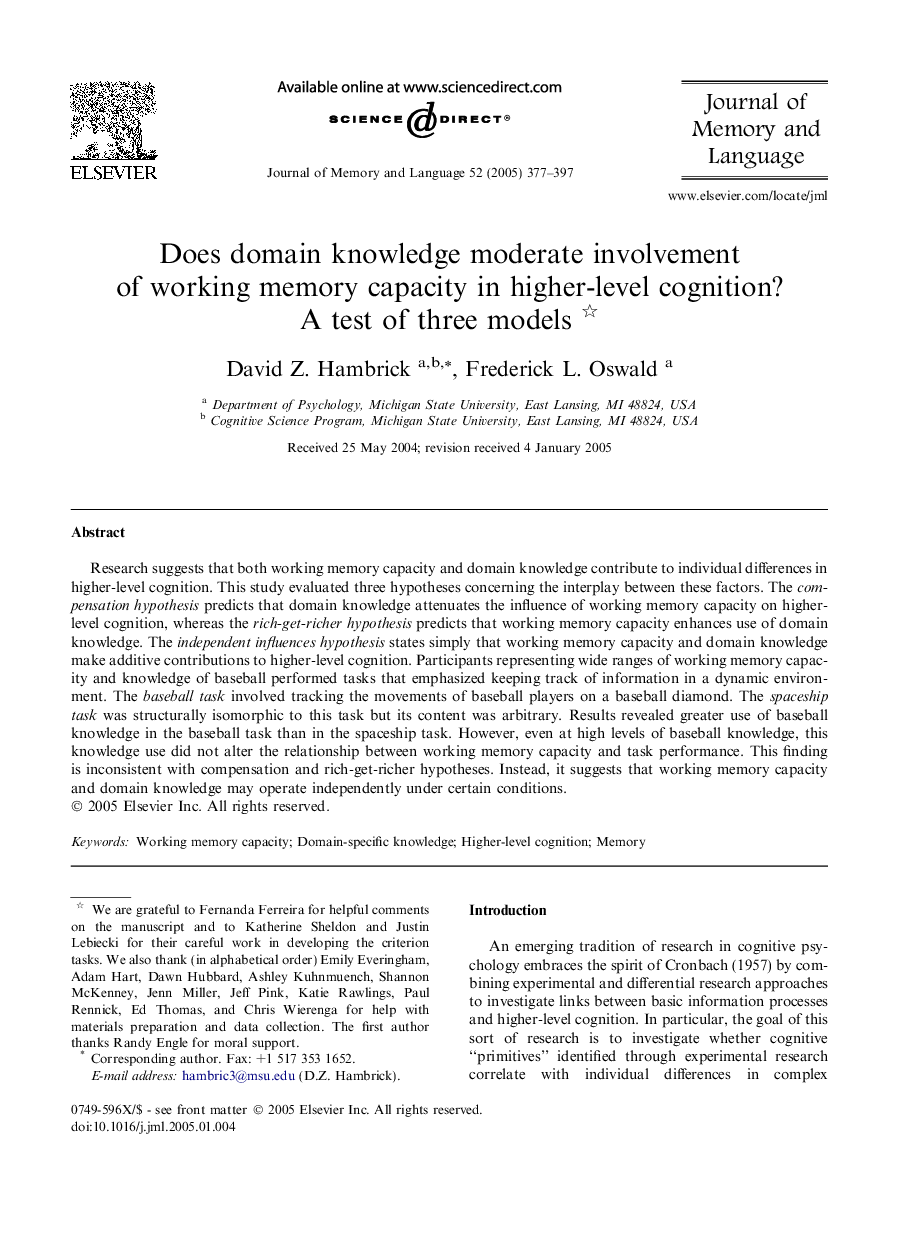| Article ID | Journal | Published Year | Pages | File Type |
|---|---|---|---|---|
| 10459884 | Journal of Memory and Language | 2005 | 21 Pages |
Abstract
Research suggests that both working memory capacity and domain knowledge contribute to individual differences in higher-level cognition. This study evaluated three hypotheses concerning the interplay between these factors. The compensation hypothesis predicts that domain knowledge attenuates the influence of working memory capacity on higher-level cognition, whereas the rich-get-richer hypothesis predicts that working memory capacity enhances use of domain knowledge. The independent influences hypothesis states simply that working memory capacity and domain knowledge make additive contributions to higher-level cognition. Participants representing wide ranges of working memory capacity and knowledge of baseball performed tasks that emphasized keeping track of information in a dynamic environment. The baseball task involved tracking the movements of baseball players on a baseball diamond. The spaceship task was structurally isomorphic to this task but its content was arbitrary. Results revealed greater use of baseball knowledge in the baseball task than in the spaceship task. However, even at high levels of baseball knowledge, this knowledge use did not alter the relationship between working memory capacity and task performance. This finding is inconsistent with compensation and rich-get-richer hypotheses. Instead, it suggests that working memory capacity and domain knowledge may operate independently under certain conditions.
Related Topics
Life Sciences
Neuroscience
Cognitive Neuroscience
Authors
David Z. Hambrick, Frederick L. Oswald,
